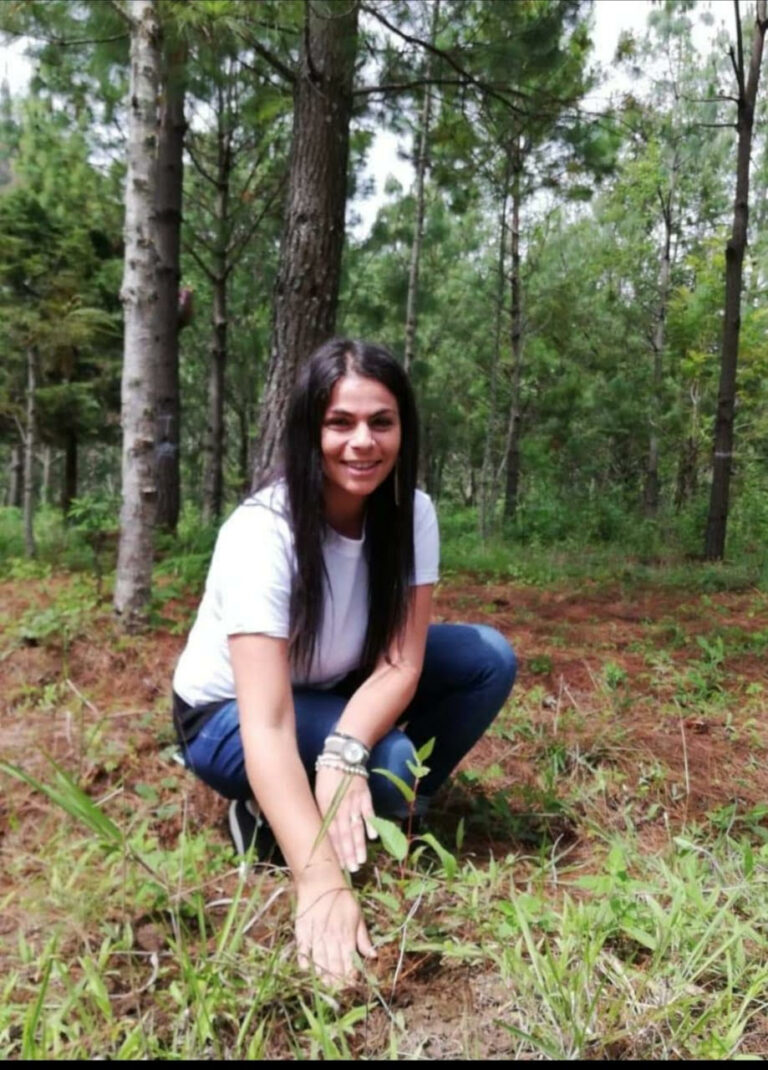Who Is Waterkeeper: Anna D’Apolito, Lake Atitlán Waterkeeper
By: Thomas Hynes

Lake Atitlán is a historically significant body of water that is also known for its beauty and volcanic activity. It enjoys UNESCO designation and is one of the biggest tourist destinations in Guatemala. It is also a major source of freshwater for tens of thousands of people. Unfortunately, Lake Atitlán faces many threats. Protecting the lake from these threats is Anna D’Apolito, who, since 2020, has served as Lake Atitlán Waterkeeper.
Anna is also the Executive Director of Asociacion Amigos del Lago Atitlán, a for-impact organization that was founded in 1990 out of love for Lake Atitlán and its cultural, social, and environmental importance. For the last few decades, the organization has worked to educate the community on the importance of conservation.
This urgent message of conservation has become necessary as the ecology of Lake Atitlán has experienced dramatic degradation that has impacted the entire lake ecosystem. The lake’s first algal bloom occurred in 2008, followed by a second large bloom the following year and has remained a major problem ever since.
“The greatest threat to Lake Atitlán is the wastewater that every day without treatment or with some type of inefficient treatment, enters the body of the lake, causing serious problems for the health of its population,” says Anna.
Anna was originally drawn to this work to protect the lake as a way to keep safe the area’s history as well as its living culture. The area is home to the Tz’utuhiles, Kaqchikeles and K’iche’s. These groups all descended from the Mayans, and each have their own language, culture and traditions. What they all have in common, of course, is the lake.
In an ideal world, Anna would like to see a more environmentally-educated population, as well as more public investment in water and sanitation projects. Until that day, however, she is more than willing to collaborate with the implementation of possible solutions to counteract the degradation of the lake.
Anna contributed to the foundation of the first Cooperative of women recyclers in Guatemala and Central America, in addition she helped to build the only program at the country level of environmental education contextualized to the department of Sololá socially, culturally and environmentally, reaching more than 15,000 students in recent years. Just earlier this year, Lake Atitlán Waterkeeper launched the eighth edition of their campaign, Reforesting Atitlán for a Green Future, with a goal of planting 150,000 trees over the course of the year.
Anna encourages the community to get involved in all of the different projects she leads, as well as to participate in decision-making spaces at the local level, pressing for local and municipal governments to implement water and sanitation projects.
Outside of the watershed, Anna has met many organizations, especially from Latin America and usually other Waterkeeper groups, with which she shares history and valuesand the passion to work in the protection of bodies of water.
That camaraderie was on display recently when Waterkeeper Alliance held its regional summit for Latin American Waterkeeper groups at the shores of lake Atitlán in Panajachel, Guatemala,. Participants at the summit noted how Lake Atitlán and its stunning volcanoes were the perfect setting for Waterkeepers to convene.
“It is a beautiful place that is severely impaired by pollution, apathy and a changing world,” wrote Waterkeeper Alliance Organizing Director, Bart Mihalovich. “It is a place not unlike the watersheds and communities where our attendee Waterkeepers descended from for this Summit. It is a place rooted in thousands of years of culture and respect for water, yet a place that is at this moment grappling with modern impacts and a critical need for protection.”